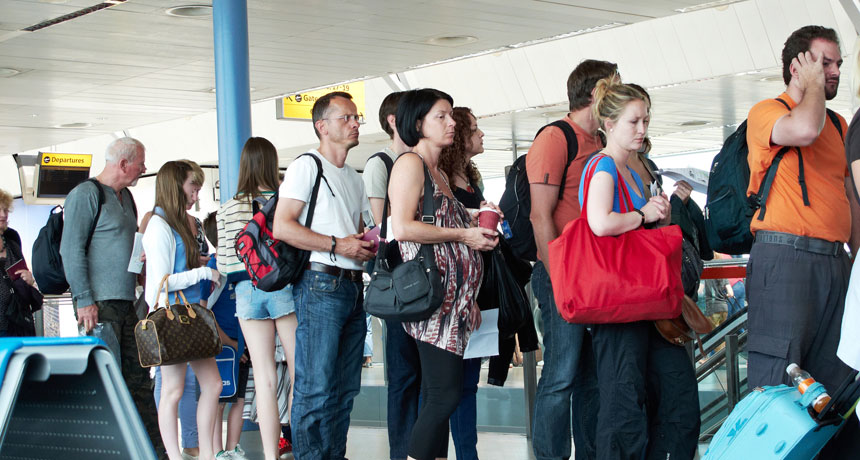Right questions could help spot devious air passengers
Airport security agents can better detect liars with a few detail-oriented queries

SAFER SKIES Asking airplane passengers probing questions about particular details of their lives may help unmask liars.
tirc83/istockphoto